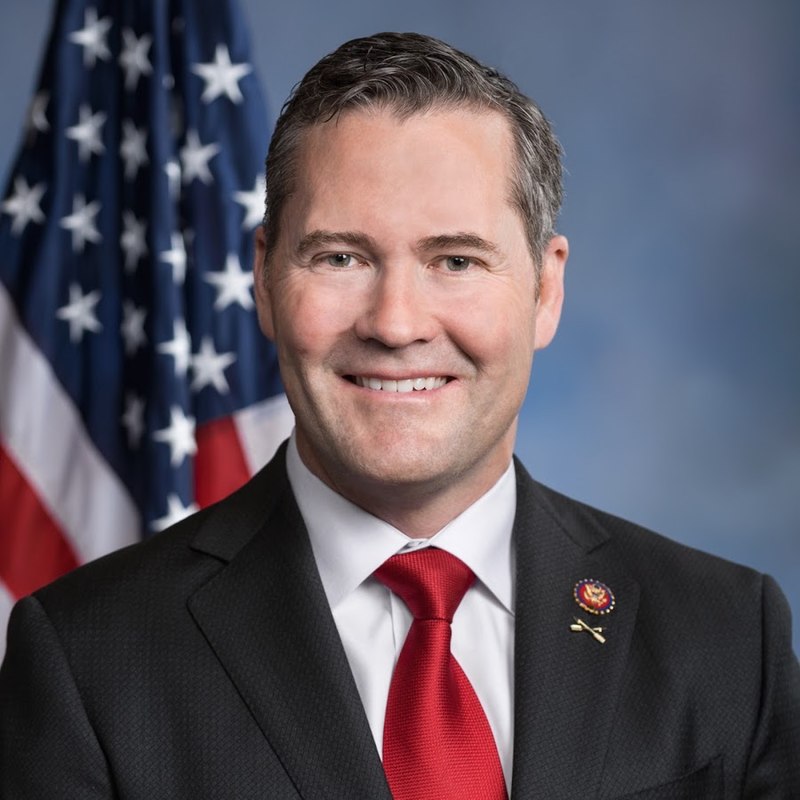


US President-elect Donald Trump made a major announcement by choosing Congressman Mike Waltz as his National Security Advisor for his second term. This decision will ensure continued bipartisan support and further strengthen the India-US relationship. Both Waltz and Indian-American Democratic Congressman Ro Khanna have a shared commitment to strengthening the bilateral relationship between the two countries. Their past collaborations include a joint letter to the House Speaker inviting Prime Minister Narendra Modi for a joint address to the US Congress and their efforts to rush medical supplies to India during the peak of the COVID-19 crisis.
Mike Waltz: Appointed as Trump's National Security Advisor for Second Term
United States President-elect Donald Trump has made a pivotal announcement by selecting Congressman Mike Waltz as his National Security Advisor for his second term. This appointment signifies a commitment to sustained bipartisan support and bolstering the Indo-US relationship.
Background
Mike Waltz is a highly decorated former Green Beret who served in the US Army for 24 years. He is currently serving his third term in the United States House of Representatives, representing Florida's 6th Congressional District.
Waltz has a long-standing interest in national security and foreign policy. He is a member of the House Armed Services Committee and the House Permanent Select Committee on Intelligence. He is also the co-founder of the bipartisan India Caucus.
Indo-US Relationship
Waltz and his fellow Indian-American Democratic Congressman Ro Khanna share a common goal of strengthening the bilateral ties between India and the United States. They have worked together on several initiatives, including a joint letter to the House Speaker inviting Prime Minister Narendra Modi to deliver a joint address to the US Congress.
During the COVID-19 pandemic, Waltz and Khanna collaborated to expedite the delivery of medical supplies to India. Their efforts showcased the strength of the relationship between the two countries.
Appointment as National Security Advisor
Waltz's appointment as National Security Advisor is a reflection of his expertise in national security and his commitment to fostering strong international alliances. His knowledge and experience will be invaluable to President Trump's administration as it navigates complex global challenges.
Top 5 FAQs
1. What are the key responsibilities of the National Security Advisor? The National Security Advisor is the President's principal advisor on national security matters. They provide counsel on foreign policy, defense, and intelligence, and coordinate the national security activities of various agencies.
2. Why did President Trump appoint Mike Waltz? Trump chose Waltz due to his extensive experience in national security, bipartisan credentials, and his commitment to strengthening the US-India relationship.
3. What impact will Waltz's appointment have on Indo-US relations? Waltz's appointment signals a continued commitment to enhancing cooperation between the two countries. His close ties with India will facilitate dialogue and strengthen strategic partnerships.
4. How will Waltz's military background influence his role as National Security Advisor? Waltz's military experience will provide him with valuable insights into operational planning, crisis management, and global security threats.
5. What are the key challenges that Waltz will face in his new role? Waltz will confront a range of complex national security challenges, including global terrorism, emerging technological threats, and geopolitical tensions.

During the Emerging Science Technology and Innovation Conclave, PM Modi announced the launch of the Rs 1 lakh crore Research, Development and Innovation Fund. This fund, under the Department of Science and Technology, aims to encourage private sector investments in R&D to drive India's vision of becoming an innovation-driven nation. With this fund, India's R&D expenditure has doubled in the last decade and the country now has the world's third-largest startup ecosystem. PM Modi also highlighted how India's domestic capability has accelerated during the COVID-19 pandemic due to its successful digital public infrastructure.

A stampede at the Kasibugga Venkateswara Swamy Temple in Andhra Pradesh has left 10 dead and two injured. The temple had recently reopened and was experiencing high footfall due to a festival. Home Minister Vangalapudi Anitha has ordered a thorough investigation into the causes of the tragedy and has promised strict measures to prevent similar incidents in the future.

India and the United States have strengthened their already strong ties by signing a 10-year framework for their major defense partnership. The agreement, signed during a bilateral meeting between the two countries' defense ministers, emphasizes the importance of this partnership in maintaining a free and open Indo-Pacific region. This marks a significant step in solidifying the bond between India and the US in the defense sector.

In preparation for a major tri-service military drill, India has issued Notices to Airmen (NOTAM) for the entire northeastern region that borders China, Bhutan, Myanmar, and Bangladesh. The first set of exercises will commence in November and continue through January, signaling enhanced operational readiness for the Indian Air Force (IAF). This move is significant as the Northeast remains a sensitive theater, making up the boundary with four countries, including China. The upcoming IAF exercises aim to strengthen India's air dominance, effectively preparing for any potential challenges along the western frontier with Pakistan.

India will conduct a 10-day military exercise in Rajasthan and Gujarat involving the Army, Air Force, and Navy to showcase its operational readiness following Operation Sindoor earlier this year. The exercise, announced through a NOTAM, features advanced military technologies and emphasises the integration of speed, firepower, and precision in desert warfare conditions. It comes amidst heightened tensions with Pakistan and a renewed focus on maintaining military readiness along the border.

Jammu and Kashmir police have filed an FIR against a group of Christian missionaries in Kathua district for allegedly attempting religious conversions through financial incentives. This comes after a video surfaced online showing the missionaries being attacked and their vehicle vandalized by villagers. The incident has sparked outrage and protests from local Hindu groups, demanding action against the accused missionaries. One accused, Ravindra Singh Thela, has been arrested while the main accused, Vivek Soni, is still at large. The police have also suspended eight personnel for failing to stop the attack.

US Vice President JD Vance, who converted to Catholicism in 2019, has revealed that he hopes his Hindu-raised wife, Usha Vance, will eventually embrace Christianity. However, he clarifies that their interfaith marriage is built on mutual respect and understanding, and that Usha has complete freedom of choice in matters of faith. The couple has found a balanced way to manage their interfaith household, with their children attending a Christian school and given the choice to be baptized.

US President Donald Trump has expressed optimism about reaching a trade deal with China "pretty soon" after a meeting with Chinese President Xi Jinping in South Korea. In addition to announcing lower tariffs on Chinese imports, Trump also stated that the issue over US access to rare earths has been resolved. However, there has been no official response from Beijing and the final decision on the sale of Chinese-owned TikTok's US operations is still pending. Analysts see these developments as a breakthrough in the ongoing trade tensions between the two countries. Our correspondents provide insight on the discussions between the two leaders and speculate on why Xi may have felt confident walking into the meeting.

At the Asia-Pacific Economic Cooperation (APEC) Summit in South Korea, Chinese President Xi Jinping and US President Donald Trump met for their first in-person talks in several years. Despite past frictions, Xi called for closer cooperation between the two largest economies in the world, emphasizing the importance of being "partners and friends." Acknowledging Trump's peace efforts in the Middle East, Xi commended his contributions and praised him as a "tough negotiator." Trump also expressed optimism for a productive discussion on trade and global security.

In a historic event, Prime Minister Shri Narendra Modi addressed the Global Maritime Leaders Conclave and chaired the Global Maritime CEO Forum at India Maritime Week 2025 in Mumbai, welcoming participants from over 85 countries. With major shipping giants, startups, policymakers, and innovators in attendance, the summit showcased India's advancements in the maritime sector, such as the replacement of outdated colonial laws with modern ones and the recognition of large ships as infrastructure assets. Amidst global tensions, India stands as a symbol of strategic autonomy and inclusive growth, ready to take on a leading role in the world's rough seas.